Coronavirus: what is it, symptoms, treatment and epidemic danger

Everything you need to know about the COVID-2019 coronavirus
The end of December 2019 was marked by alarming reports about the emergence of a new infectious disease, the causative agent of which is the 2019-nCoV coronavirus. The first infected people were registered in China - the city of Wuhan, Hubei province. The symptoms of the disease caused by the coronavirus are similar to SARS, but in a significant number of cases there is a complication in the form of a severe form of pneumonia.
What are coronaviruses?
Coronaviruses are a group of RNA viruses, which currently includes 40 types of pathogens that cause diseases in humans and higher animals. The name "coronavirus" reflects the structure of the infectious agent, in which the spike-like appendages formed by S-proteins resemble the appearance of the solar corona.
This group includes:
- SARS-CoV 9 (severe respiratory syndrome), the causative agent of atypical pneumonia, which was first registered in 2002;
- MERS-CoV is the causative agent of Middle East Respiratory Syndrome (MERS), discovered in 2012 in Saudi Arabia.
- The infection caused by the 2019-nCoV coronavirus is called COVID-2019 (the official term from WHO); the same infection is called NCP in China.
January 30, 2020 The WHO has recognized the outbreak of the disease of COVID-19 as an emergency of international importance. On March 11, 2020, Tedros Ghebreyesus, WHO Director-General, declared the COVID-19 pandemic. On May 5, 2023, he also announced the end of the global state of emergency due to the COVID-19 pandemic. This does not mean the complete disappearance of COVID-19, but only a change in status - now the virus is considered endemic, that is, constantly circulating in the population.
Statistics on mortality
Mortality from atypical pneumonia, which broke out in South China (and later - in Vietnam, Hong Kong, Singapore), was 9-10%, and mortality from MERS coronavirus - about 34%. The percentage of deaths from COVID-2019 is much lower — only 3.6%, but more cases of infection have been detected. At the same time, the share of people over 80 years of age accounts for 14.8% of deaths, in the group of 70-79 years - 8%, 60-69 years - 3.6%, and then this indicator progressively decreases. Not a single case of death was recorded in the group of children from birth to 9 years.
Coronavirus symptoms are most difficult to detect in very elderly people, people with weakened immunity, as well as those who suffer from chronic diseases of the kidneys, liver, respiratory organs, and the cardiovascular system. Simply put: the worse the state of health, the more severe the disease and the higher the probability of death.
Contributory factors to the severe course of the infection include increased (and regular) fatigue, lack of sleep, frequent stress, and nervous exhaustion. Excessive physical and mental stress, poor nutrition, unfavorable environment increase the risk of complications.
Ways of infection with the COVID-2019 coronavirus
Coronavirus from China 2019-nCoV is transmitted from person to person during the active phase of the disease, as well as in the incubation period, when there are no symptoms. Ways of transmission of infection:
- coughing and sneezing (airborne route);
- close contact, touch (handshake, kiss with an infected person);
- contact with household items and waste used by the patient.
The spread of the coronavirus pathogen during sneezing or coughing is about two meters. Thus, people who are at a distance of four meters from an infected person are not infected.
On the surface of things that people come into contact with during the day (door and window handles, tables, documents, household appliances, dishes, etc.), the virus remains viable for three hours. Wiping objects with disinfectant solutions destroys the centers of spread of pathogens.
The level of infectivity (contagiousness) of the coronavirus is estimated by the basic reproductive number RO. According to British scientists from Lancaster University, this number is closer to 4, which means: 1 infected person can infect 3-4 people.
Symptoms
As already mentioned, the 2019-nCoV coronavirus causes symptoms similar to SARS, which include:
- cough (more often dry, less often - with a small amount of sputum);
- sneezing, runny nose;
- headache (8%);
- diarrhea (3%);
- weakness, sweating (90%);
- chest tightness (20%);
- muscle pains (2%);
- Shortness of breath (55% of cases);
82% of infected people tolerate the disease easily and recover quickly, 15% are seriously ill, 3% are in critical condition.
In case of COVID-19, complications of varying degrees of severity may occur: sinusitis, bronchitis, pneumonia; serious consequences of infection caused by coronavirus include pulmonary edema, infectious-toxic shock, sepsis.
How is COVID-19 diagnosed?
Diagnosis is carried out in a laboratory way. The basis for the analyzes are the above-mentioned symptoms, the arrival of a person from the risk zone (countries where there is an outbreak of diseases), the presence of cases of the disease in the family or work team.
Diagnosis of the disease caused by the coronavirus is carried out by the molecular genetic method of PCR (polymerase chain reaction). The main method of obtaining material for research is a smear from the throat or oropharynx. Additionally, if necessary, nasopharyngeal aspirate, sputum, biopsy material of respiratory organs, blood, urine are used.
Risk group
Suspicion of infection with COVID-19 infections occurs in the following cases:
- at the appearance of clinical manifestations of SARS, bronchitis, pneumonia, which occurred after visiting countries where there is an outbreak of coronavirus infection;
- in case of arrival from countries with a high level of morbidity;
- in the presence of regular contacts during the last 14 days with persons under supervision (who later became ill);
- if there are contacts with persons who have been diagnosed with COVID-19.
How to avoid infection?
In order to minimize the risk of infection with COVID-19, the World Health Organization calls for the following recommendations:
- do not visit countries where cases of infection are registered;
- avoid crowded places;
- do not allow hypothermia (immunity decreases);
- move aside - at a distance of at least 3 m - from people with symptoms of colds and SARS (sneezing, coughing);
- wash your hands with soap as often as possible, and in those places where there is no access to water, use disposable alcohol wipes;
- do not touch railings, handles and other surfaces with unprotected hands, use disposable sanitary napkins if contact cannot be avoided.
- wear disposable medical masks on the street and in transport;
- ventilate the room where you are;
- do physical education, eat well (more vegetables, fruits), do not disturb the sleep regime.
How to treat hands with antiseptics
For hand treatment, use an antiseptic solution with an alcohol content of 60-80% or a concentration of chlorhexidine of 2%. Remember that other solutions that can be offered by points of the pharmacy chain with the inscription "hand antiseptic" (for example, infusion of chamomile or calendula), where the alcohol concentration is 40%, are not effective.
When treating with an antiseptic, cover the entire surface of the palms and hands with the solution. During one procedure, use at least three milliliters of solution, which is approximately 24-27 dosed injections with a pocket dispenser. Pour the solution into a bottle with a dosing device to more precisely control the consumption and treat the skin more effectively.
The time of the hygienic procedure is about 30 seconds. Pay special attention to nail treatment, where the largest amount of dirt accumulates. Wash your hands immediately after contact with surfaces in public places, as well as after traveling in transport.
In cases where the alcohol antiseptic has to be used often, apply a softening hand cream to avoid the formation of cracks and overdrying of the skin.
Keep the bottles with the disinfectant solution out of the reach of children to avoid possible poisoning by the components of the composition.
How to wear a mask correctly
Hands should be treated with an antiseptic before each wearing of a mask. The medical mask should completely cover the mouth and nose, fit tightly to the skin, without creating gaps between the fabric and the skin at the edges.
Put on a new mask if the fabric gets wet, and change it every 2 hours. Do not touch the outer part of the product, and if this happens, immediately treat your hands with an antiseptic. Do not reapply the mask. Dispose of used masks in the trash.
Additional recommendations for employees of communal catering enterprises
All types of dishes must be washed with a brush in special containers (baths), at a water temperature of at least 50 degrees with the addition of a detergent according to sanitary standards. Rinsing is carried out under running water at a temperature of at least 65 degrees - a separate container is used for these purposes. Special towels are used for drying.
How not to infect others with the coronavirus
If warning symptoms appear (temperature, cough, sneezing), stay at home and call a doctor. If there is no mask in the house, cover the nose and mouth area with a disposable handkerchief or tissue when coughing or sneezing. Do not bring your palms to your mouth, as this only contributes to the spread of infection (as a last resort, it is better to cover your mouth with the crook of your elbow).
Wash your hands with soap every time after touching your face or wipe with moisturizing sanitary napkins. Immediately dispose of used material in garbage bags.
Ask your relatives or social service workers to help with food delivery, utility bills, and medication purchases to reduce the risk of spreading the coronavirus. Limit contact with other people as much as possible, and if this is not possible, ensure that they take the above safety measures. Do not touch your eyes with your hands, this is one of the most common ways of introducing the pathogen into the body.
Do not eat raw products (with the exception of fruits), subject vegetables, meat, milk to high-temperature processing, throw all packaging materials brought from the store into the trash can. Wear disposable rubber gloves when cleaning.
Treatment
To date, there are no effective drugs for the treatment of infection caused by the 2019-nCoV coronavirus. WHO is carefully checking the information about the appearance of the vaccine, which is claimed by scientists in the United States and China.
However, with proper medical care, most patients recover, including those who enter the hospital in critical condition. In critical cases, people need help with breathing, which can only be obtained under hospital conditions. There, doctors prescribe some antiviral drugs that help ease the course of the disease or speed up recovery.
Myths about the coronavirus
As always, the appearance of a new type of infection is accompanied by the appearance of various rumors and myths. Here are the most common:
- domestic animals can be carriers of coronavirus (there is no proof);
- many patients get serious complications (while the consequences of the transferred infection are observed in elderly people with chronic diseases);
- coronavirus was created in a laboratory (the characteristics of the virus completely match the characteristics of pathogens of natural origin, which refutes this statement);
- it is dangerous to receive parcels from China (according to the WHO, the virus cannot remain viable on packages and boxes for more than three hours).
There are other myths about infection, ways of infection and degree of danger. You should not read information from unverified sources - it contains a lot of unreliable data.
Prevention through vaccination
Vaccination against coronavirus helps protect the body from severe disease. It reduces the risk of hospitalization and complications. Vaccination is especially important for the elderly and those with chronic diseases. Vaccines are safe and have been tested in many countries.
Coronavirus vaccines are mRNA (for example, Pfizer, Moderna), vector (AstraZeneca, Johnson & Johnson) and protein (Novavax).
The following COVID-19 vaccination scheme is currently in effect in Ukraine:
- the primary course consists of one or 2 vaccines, depending on the manufacturer. For example, if it is the Comirnaty vaccine (Pfizer-BijNTech) - 2 doses are administered with an interval of 21-28 days (can be extended to 6 weeks);
- the first booster (revaccination) dose - 5 months after the completion of the primary course;
- the second booster dose 4-6 months after the first booster for people from risk groups (aged 60+, with chronic diseases), others can receive it at will.
Why should you contact the t Dobrobut clinic if you suspect you have been infected with COVID-19?
If you have symptoms of ARVI - consult a doctor. This rule is relevant for everyone and at all times, regardless of whether an epidemic has been recorded in the settlement or not. Medical care is a guarantee of adequate measures of medical care and protection of others from contracting the coronavirus infection.
Specialists of Dobrobut network clinics will do their best to:
- quick establishment of a diagnosis (we have a state-of-the-art laboratory that works according to European standards);
- providing effective symptomatic care (all unpleasant symptoms of the disease will be treated);
- ensuring the comfort of a stay in the clinic (comfortable modern wards);
- prevention of complications and elimination of dangerous attacks (the latest generation medical equipment is available).
Highly qualified specialists work in all departments of the medical center, which is manifested in the correct choice of treatment methods, as well as compliance with the rules of medical ethics, application of an individual approach to each patient. We are equally attentive to representatives of different age groups, while devoting as much time as possible to the elderly and children who need psychological support.
You can use all types of medical services, including an ambulance call and treatment in a separate ward with increased comfort.
Don`t be afraid of coronavirus and other infections! Call the doctors from the Dobrobut clinic - and you will be provided with the best medical care in all respects.
Author of the article - Levada Iryna Nikolaevna
Reviewer of the article - Rykova Stanislava Oleksandrivna
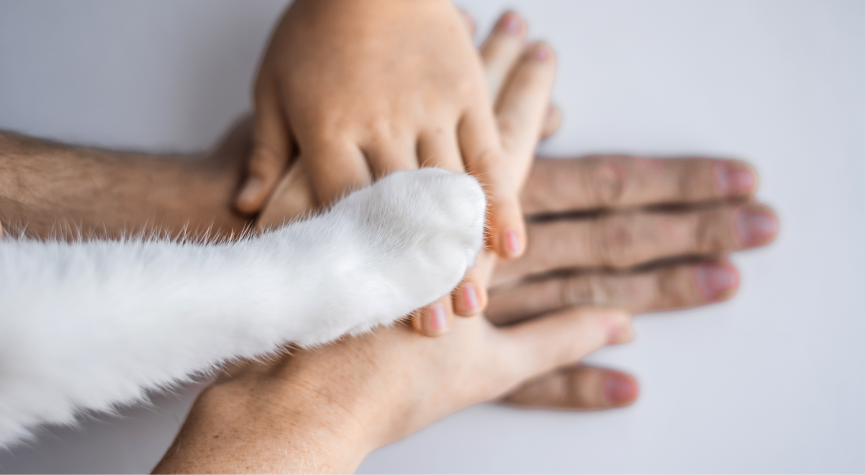
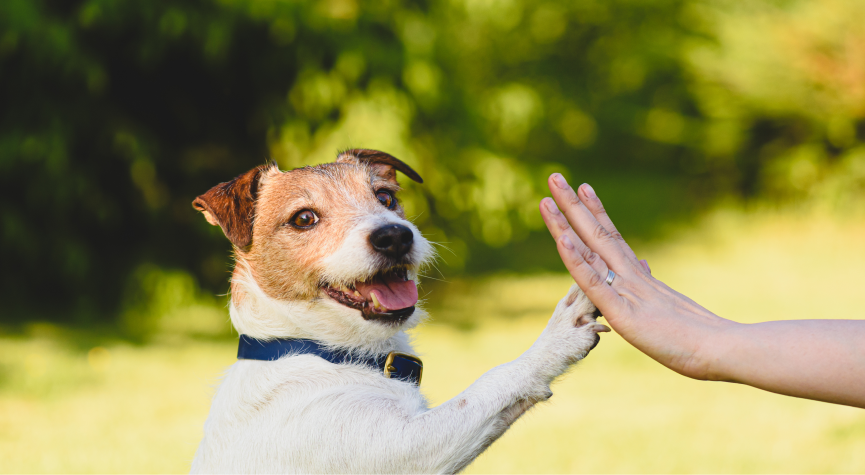

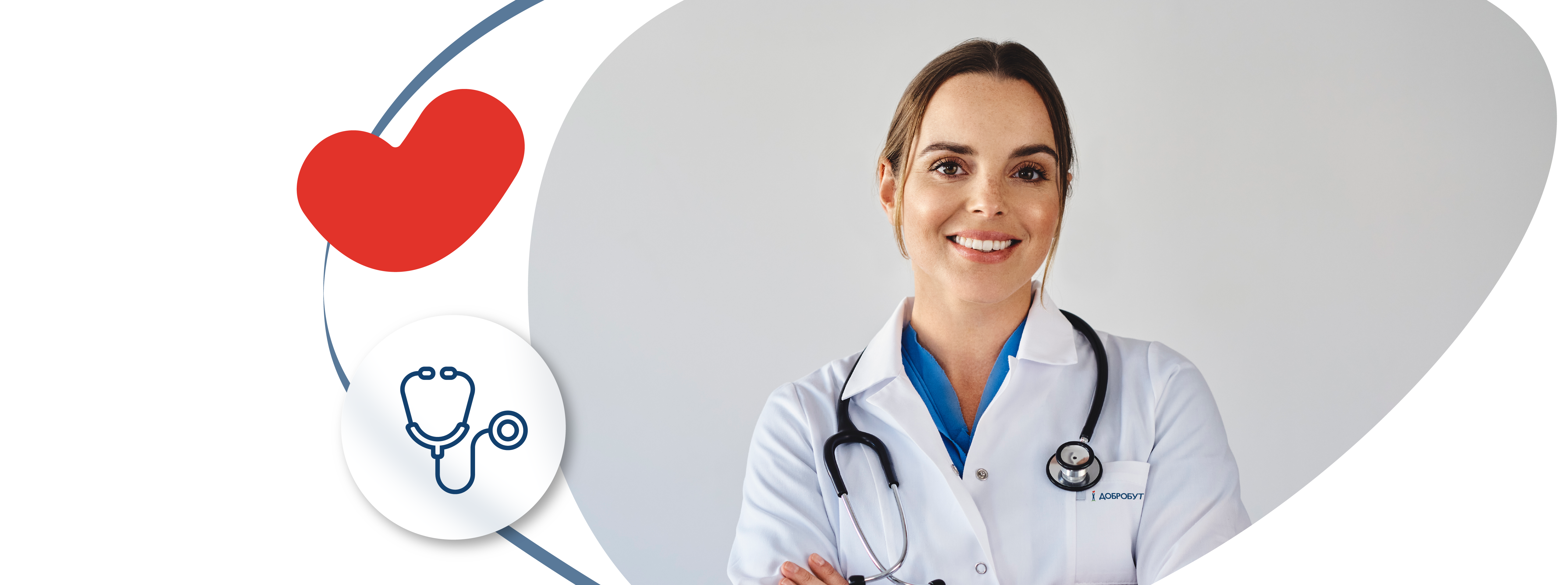

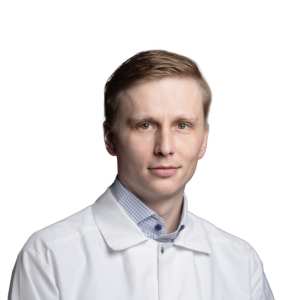






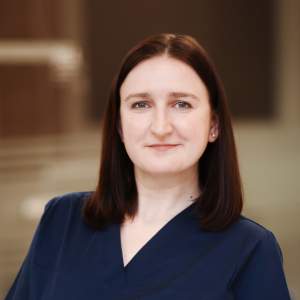



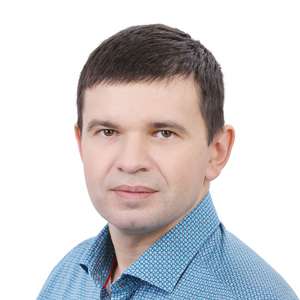





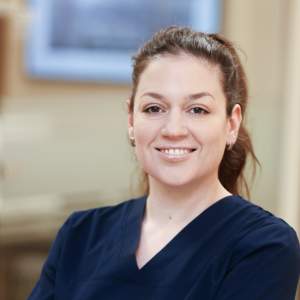



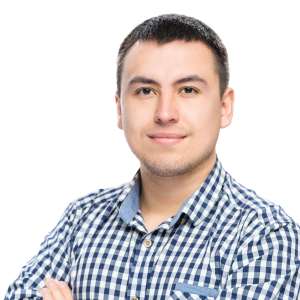

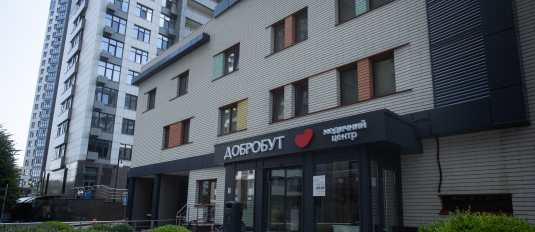
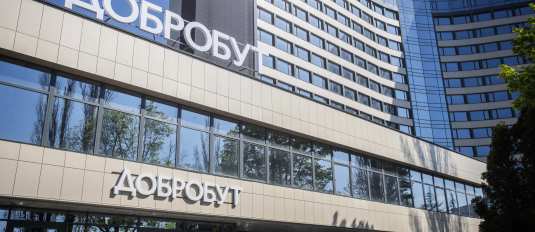
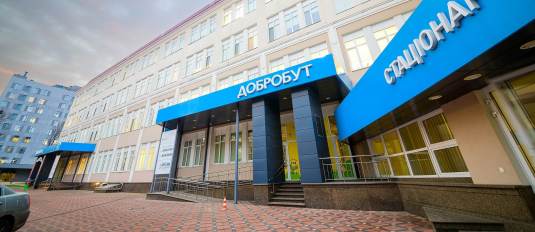
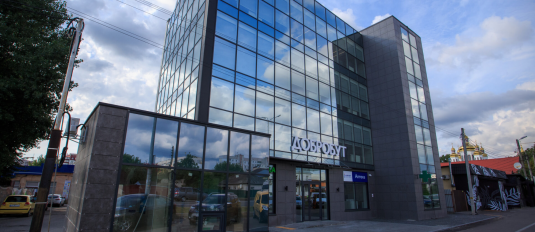
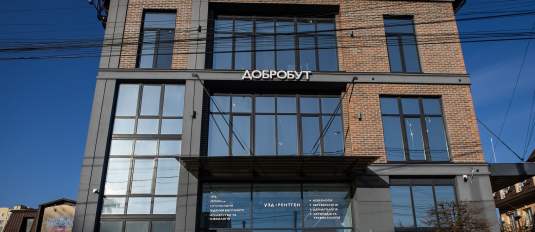
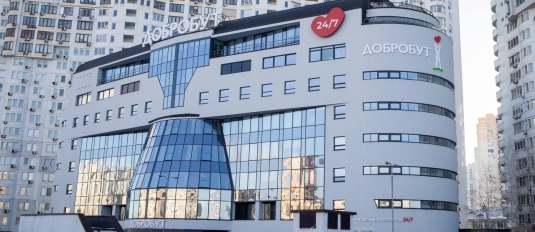
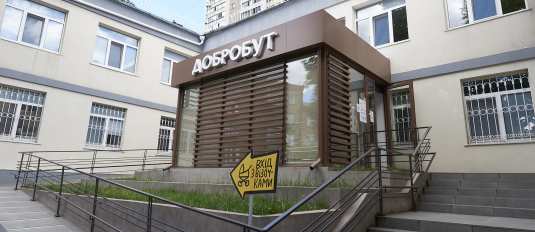
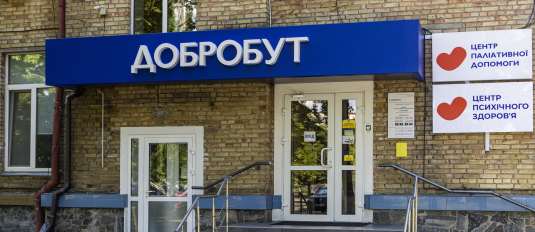

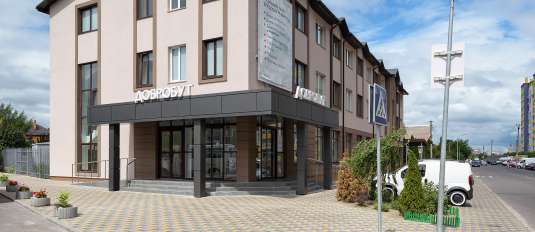


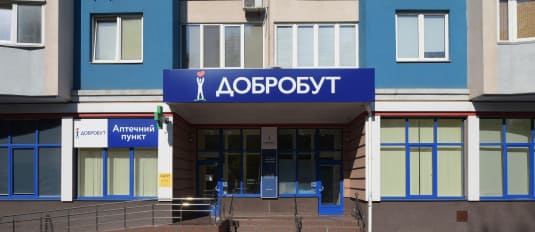


%402x.png)
%402x.png)
